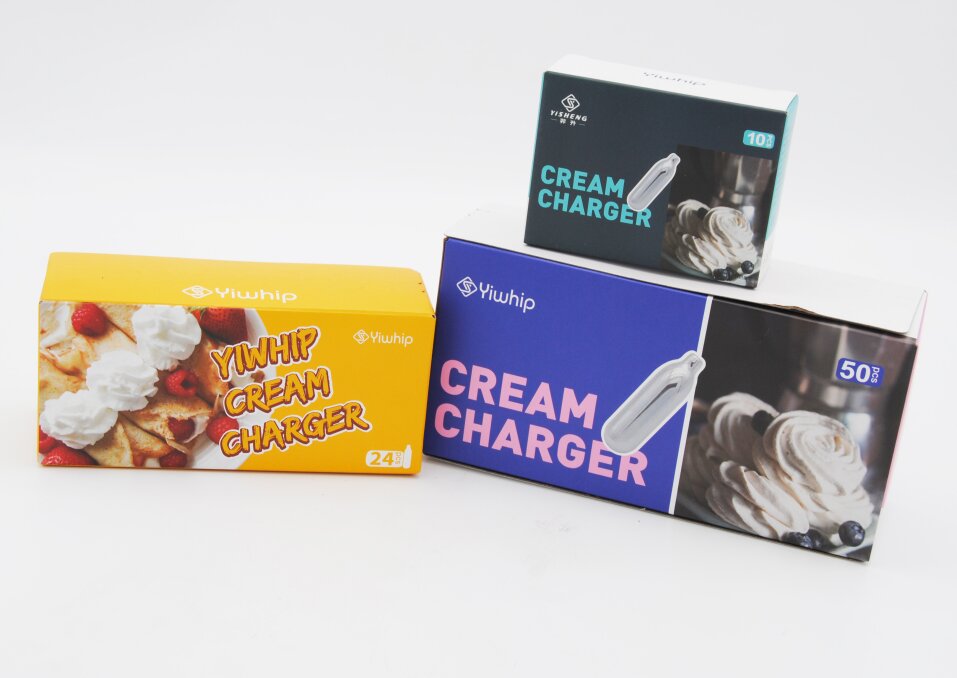The Hidden Dangers of Nitrous Oxide Chargers in Bulk
While bulk nitrous oxide canisters—most commonly known as whipped cream chargers—are primarily associated with whipping up light, airy creams for desserts or specialty coffees, their usage outside the kitchen raises some significant concerns. Especially in countries where these products are relatively new to the market, like Uganda, there remains a lack of public awareness regarding safe use, potential risks, and environmental impacts.
Whipped cream chargers (WCRs), small metal cartridges containing pressurized N₂O gas, have seen rising popularity among bakers, baristas, food enthusiasts, and even chemists. In professional environments such as cafes and upscale restaurants, they're efficient tools that enhance consistency, texture, and overall user experience. **However, misuse or improper handling—such as inhaling gas directly (often called "huffing") or tampering with storage conditions—introduces severe medical consequences** like nerve damage, hypoxia, loss of motor control, and even sudden sniffing death syndrome in worst-case scenarios.
Silent Environmental Threat Lurking in Disposable Canisters
Most people don't realize it, but those convenient one-time-use nitrous oxide cylinders are part of a larger global challenge—**nitrogen emissions contribute significantly to climate change**.
Nitrous oxide is an exceptionally potent greenhouse gas; its warming impact over a century-long span is nearly **300 times stronger than carbon dioxide**. Although food-related applications aren’t major contributors to total N₂O emissions (those come largely from agriculture), widespread use without regulation increases pressure on sustainability efforts across Africa, including Uganda's developing culinary industries.
Moreover, due to their size and material complexity—combining compressed metal and chemical residue—disused WCR containers often slip through recycling systems, especially if no centralized system exists. If improperly disposed, they can lead to local soil and air contamination as the metallic shells decompose slowly and release residual nitrogen.
Beyond Whipping: Unusual—but Real—Alternative Uses
You might wonder, "Is there any purpose for these devices beyond frothy foam desserts?" While the food industry remains their most accepted application, several alternative functions emerge in various niches—including electronics cooling, DIY lab simulations, and artistic performances requiring dramatic vapor bursts. Let’s break them down.
- Medical Simulation Labs: Some universities repurpose expired or low-quality WCR cartridges in mock anesthesia training for medics due to similarities in physical pressure behavior despite non-toxic status.
- Electronic Cooling Systems: Enthusiasts experiment using small nitrous releases to cool overclocked CPUs during intensive computing operations—an extreme and sometimes unsafe hobbyist modification.
- Molecular Gastronomy Performances: Chefs blend theatrical flair into meals by triggering rapid fog or cloud effects at dining tables by combining chilled water with instant gas dispersion.
Creative applications aside, always consider local regulations when applying such alternatives in practice.
Legal Status: Is It Legal to Buy Nitrous Oxide in Bulk in Uganda?
In Uganda’s evolving gastronomy scene, legal gaps exist regarding the sale and distribution of nitrous oxide canisters intended strictly for commercial purposes. Unlike more volatile substances like ether, ammonia compounds, or aerosol propellants banned for abuse prevention under public intoxication statutes globally, whipped cream dispensers generally remain legally accessible. **That doesn’t imply full immunity**; import rules and labeling guidelines are enforced inconsistently across Kampala and rural trade sectors.
Some districts require formal registration of bulk suppliers. Additionally, vendors may unknowingly violate customs duties or chemical handling norms by shipping these goods unlabeled.
As such, users should ensure compliance when sourcing supplies locally or importing directly. Check for official stamps or distributor certification from health or safety regulatory agencies before committing to wholesale purchases or commercial deployment beyond kitchen-level experimentation.
The Growing Youth Trend & Why Curiosity Turns Toxic
One emerging issue observed in urban Ugandan centers—and reported quietly among medical professionals—is youth attraction toward recreational gas misuse, mimicking trends previously spotted with glue sniffing among low-income youth circles. Social media exposure, YouTube life-hacks promoting quick fun fixes, combined with easily available cans both physically and digitally, contributes to unintentional normalisation of misuse habits.
This poses unique cultural challenges: unlike cigarettes or alcohol—which communities can discuss candidly due to historical precedent—the novelty makes education campaigns less effective without culturally sensitive approaches.
If you operate a business selling whipped cream chargers to hospitality or home markets, ethical marketing becomes essential here. Don't market them as toys or party novelties. Instead, emphasize proper usage via product descriptions, store displays, or QR codes on packaging linking to usage guides online tailored explicitly for African settings.
Possible Regulations: A Look Into What Uganda Could Introduce Soon
Regulating nitrous oxide use is a balancing act—curbing misuse while supporting genuine economic and food-sector growth potential. As other developing nations begin addressing the rise in WCR misuse patterns among youth groups or illegal redistribution into black markets (sometimes repackaged and rebranded without oversight), the likelihood of Uganda adopting restrictions seems inevitable:
| Potential Regulatory Move | Impact Level | Industry Reaction Forecast |
|---|---|---|
| Age restrictions on retail buyers | Moderate risk mitigation | Vendor pushback expected; could affect restaurant supplies |
| Obligatory supplier license renewals yearly | High compliance demand | Might discourage independent sellers but increase transparency |
| Eco-label warnings about methane-like GHG impact per can | Moderate educational value | Luxury niche markets adopt voluntarily, others protest |
Final Takeaway: Use Responsibly and Spread The Knowledge
To summarize key takeaway points:
- N₂O cream chargers boost efficiency in cooking and baking but come packed with hidden hazards if mishandled or inhaled unsafely;
- Dangers range from immediate neurological impairment to long-lasting environmental impact tied to powerful global heating factors;
- Though Uganda currently lacks strict oversight for WCR distribution aimed at end-users rather than institutions, shifts are expected amid rising awareness campaigns by international bodies and domestic healthcare advocates;
- Rare applications in electronics or entertainment offer curiosity-inducing options but must stay grounded within controlled experiments;
- All vendors, manufacturers, import-export players must prioritize consumer safety, label clarity, responsible distribution, and ethical digital advertising strategies.

